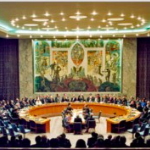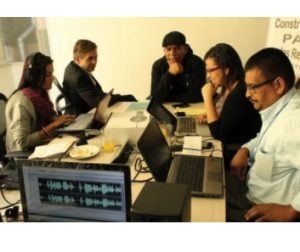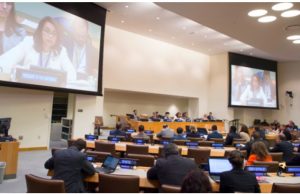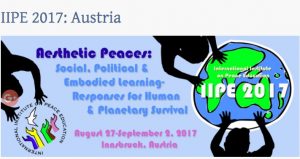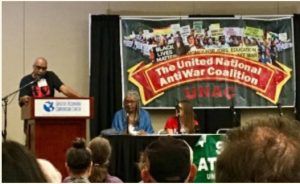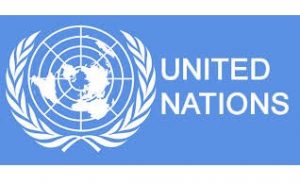.. DEMOCRATIC PARTICIPATION ..
An article from World Beyond War (abbreviated)
The U.S. Conference of Mayors on Monday [June 26] unanimously passed three resolutions opposing the military-heavy Trump budget proposal, urging Congress to move funding out of the military and into human and environmental needs rather than the reverse.

The three resolutions are numbers 59 and 60 found on this page.
and number 79 found on this page.
“We are very excited that the entire US Conference of Mayors, from major metropoles such as New York City and Los Angeles to small rural townships, understand that the resources being sucked up by the Pentagon to wage endless wars overseas should be used to address our crumbling infrastructure, the climate crisis and poverty at home and abroad. Congress and the Trump administration should listen to these mayors, as they reflect the needs and hopes of their constituents, not the greed of corporate donors,” said Medea Benjamin of CODEPINK.
“The Peace Council applauds the resolve of major city mayors to dramatically cut the U.S. military budget and to take the funds saved to provide money for jobs, education, housing, transportation, seniors, youth, rebuild our roads, bridges, public transportation much more,” said Henry Lowendorf of the US Peace Council. “The mayors understand how pouring the wealth of our great country into building war machines and waging wars around the globe does not make us more secure. To the contrary, this gigantic military budget is strangling our country and the many unnecessary wars only generate death, destruction and enemies. We fully support the mayors’ call both for inviting the public and city leaders to hearings expressing on how funds saved by cutting the Pentagon budget can be used in our cities and for passing resolutions to our members of Congress demanding that they respond to cities to begin prioritizing the needs of our residents over war profiteering.”
“These three resolutions should be read carefully by every member of Congress,” said David Swanson, director of World Beyond War. “These are the considered statements of the mayors of this country, as prompted by the citizens of numerous cities that moved their city councils to pass similar resolutions and their mayors to support these.”
Information on a campaign to pass resolutions through city councils, and those that have been passed thus far, can be found here: http://worldbeyondwar.org/resolution
Over 20,000 people signed a petition similar to Resolution 59 here: https://actionnetwork.org/petitions/un-trump-the-budget
Resolution 59 was introduced by the mayor of Ithaca, NY, and had been passed by that city. . . [click here for the resolution]
Resolution 60 was introduced by the Mayor of New Haven, CT, and had been passed by that city. . . . [click here for the resolution]
Sponsors of Resolution 79 were:
The Honorable T.M. ‘Frank’ Franklin Cownie, Mayor of Des Moines
The Honorable Alex B. Morse III, Mayor of Holyoke
The Honorable Ardell F. Brede, Mayor of Rochester
The Honorable Chris Koos, Mayor of Normal
The Honorable Denny Doyle, Mayor of Beaverton
The Honorable Frank C. Ortis, Mayor of Pembroke Pines
The Honorable Geraldine ‘Jeri’ Muoio Ph.D., Mayor of West Palm Beach
The Honorable Helene Schneider, Mayor of Santa Barbara
The Honorable John Dickert, Mayor of Racine
The Honorable John Heilman, Mayor of West Hollywood
The Honorable Libby Schaaf, Mayor of Oakland
The Honorable Lucy Vinis, Mayor of Eugene
The Honorable Mark Stodola, Mayor of Little Rock
The Honorable Nan Whaley, Mayor of Dayton
The Honorable Patrick L. Wojahn, Mayor of College Park
The Honorable Paul R. Soglin, Mayor of Madison
The Honorable Pauline Russo Cutter, Mayor of San Leandro
The Honorable Roy D. Buol, Mayor of Dubuque
The Honorable Salvatore J. Panto Jr., Mayor of Easton
(continued in right column)
Questions for this article:
How can culture of peace be developed at the municipal level?
The post-election fightback for human rights, is it gathering force in the USA?
(continued from left column)
The resolution recognized some of the cities that have passed resolutions:
“The United States Conference of Mayors welcomes resolutions adopted by cities including New Haven, CT, Charlottesville, VA, Evanston, IL, New London, NH, and West Hollywood, CA urging Congress to cut military spending and redirect funding to meet human and environmental needs.”
It further resolved (at least as drafted; there were slight modifications):
“NOW, THEREFORE BE IT RESOLVED, that The United States Conference of Mayors (USCM) calls on the United States Government, as an urgent priority, to do everything in his power to lower nuclear tensions though intense diplomatic efforts with Russia, China, North Korea and other nuclear-armed states and their allies, and to work with Russia to dramatically reduce U.S. and Russian nuclear stockpiles; and
“BE IT FURTHER RESOLVED, that The United States Conference of Mayors welcomes the historic negotiations currently underway in the United Nations, involving most of the world’s countries, on a treaty to prohibit nuclear weapons, leading to their total elimination; and
“BE IT FURTHER RESOLVED, that The United States Conference of Mayors deeply regrets that the United States and the other nuclear-armed states are boycotting these negotiations; and
“BE IT FURTHER RESOLVED, that The United States Conference of Mayors calls on the United States to support the ban treaty negotiations as a major step towards negotiation of a comprehensive agreement on the achievement and permanent maintenance of a world free of nuclear arms, and to initiate, in good faith, multilateral negotiations to verifiably eliminate nuclear weapons within a timebound framework; and
“BE IT FURTHER RESOLVED, that The United States Conference of Mayors welcomes the Restricting First Use of Nuclear Weapons Act of 2017, introduced in both houses of Congress, that would prohibit the President from launching a nuclear first strike without a declaration of war by Congress; and
“BE IT FURTHER RESOLVED, that The United States Conference of Mayors calls for the Administration’s new Nuclear Posture Review to reaffirm the stated U.S. goal of the elimination of nuclear weapons, to lessen U.S. reliance on nuclear weapons, and to recommend measures to reduce nuclear risks, such as de-alerting, improving lines of communication with other nuclear-armed states, and ending nuclear sharing, in which Belgium, Germany, Italy, Netherlands, and Turkey host U.S. nuclear bombs; and
“BE IT FURTHER RESOLVED, that The United States Conference of Mayors calls on the President and Congress to reduce nuclear weapons spending to the minimum necessary to assure the safety and security of the existing weapons as they await disablement and dismantlement; and . . .
“BE IT FURTHER RESOLVED, that The United States Conference of Mayors calls on the President and Congress to reverse federal spending priorities and to redirect funds currently allocated to nuclear weapons and unwarranted military spending to restore full funding for Community Block Development Grants and the Environmental Protection Agency, to create jobs by rebuilding our nation’s crumbling infrastructure, and to ensure basic human services for all, including education, environmental protection, food assistance, housing and health care,
“BE IT FURTHER RESOLVED, that The United States Conference of Mayors urges all U.S. mayors to join Mayors for Peace in order to help reach the goal of 10,000 member cities by 2020, and encourages U.S. member cities to get actively involved by establishing sister city relationships with cities in other nuclear-armed nations, and by taking action at the municipal level to raise public awareness of the humanitarian and financial costs of nuclear weapons, the growing dangers of wars among nuclear-armed states, and the urgent need for good faith U.S. participation in negotiating the global elimination of nuclear weapons.”
